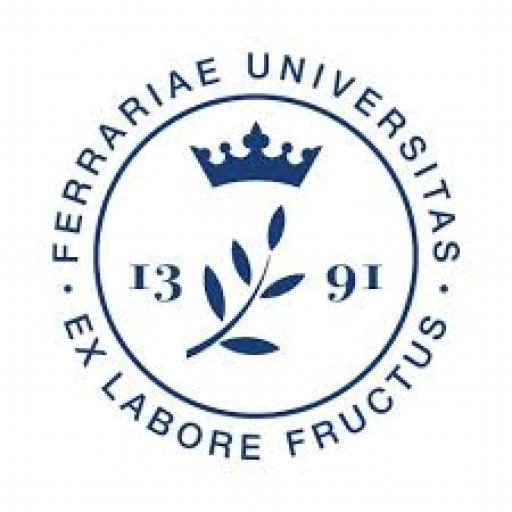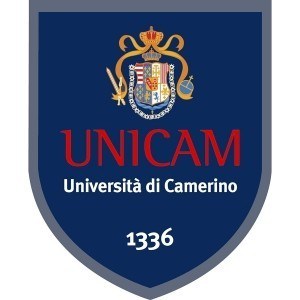Photos of university
Field of study: Geotechnics and Geohazards
This program offers comprehensive education and training in the principles, methods, and applications of geotechnics and geohazards, preparing students to address complex challenges associated with the Earth's subsurface. Students will gain a thorough understanding of soil and rock mechanics, foundation engineering, slope stability, and landslide mitigation, as well as the assessment and management of natural and anthropogenic geohazards such as earthquakes, landslides, and soil erosion. The curriculum combines theoretical knowledge with practical skills, including laboratory testing, field investigations, geotechnical modeling, and risk analysis. Through coursework, research projects, and internships, students will develop critical thinking abilities and technical expertise necessary for solving real-world problems faced by civil, environmental, and geotechnical engineers.
The program emphasizes sustainable and environmentally responsible approaches to geotechnical engineering, focusing on minimizing hazards and maximizing safety in construction and infrastructure development. Students will learn to utilize advanced software tools for geotechnical analysis and design, interpret geophysical data, and implement innovative solutions for hazard mitigation. Graduates will be equipped for careers in consulting firms, governmental agencies, research institutions, and construction companies, contributing to the safety and resilience of infrastructure in regions prone to seismic activity, landslides, and soil instabilities.
Moreover, the program encourages interdisciplinary collaboration, integrating knowledge from geology, environmental sciences, and urban planning to create holistic solutions for geohazard management. Faculty members are engaged in cutting-edge research, ensuring that students are exposed to the latest developments in geotechnical research and practice. By participating in seminars, conferences, and collaborative projects, students will be part of a dynamic professional community dedicated to advancing the field of geotechnics and minimizing the risks associated with natural and man-made geological hazards.
Graduates of this program will be well-prepared to undertake innovative projects targeted at understanding, predicting, and mitigating geohazards, thereby contributing to public safety, environmental protection, and sustainable development in vulnerable regions worldwide. This program aims to produce highly skilled engineers and researchers who will drive progress in geotechnical sciences and work towards a safer and more resilient built environment for future generations.
The Geotechnics and Geohazards program at the University of Science and Technology offers a comprehensive curriculum focused on understanding the physical properties and behavior of soils and rocks, with an emphasis on their engineering applications and associated hazards. Students will gain in-depth knowledge of foundational geotechnical principles, including soil mechanics, rock mechanics, and engineering geology, enabling them to analyze and solve complex geotechnical problems. The program covers advanced topics such as the design and construction of foundations, retaining structures, tunnels, slopes, and embankments, ensuring graduates are well-equipped to undertake practical engineering tasks in diverse environments.
In addition to core technical subjects, the curriculum delves into the study of geological hazards such as landslides, earthquakes, subsidence, and soil liquefaction. Emphasis is placed on hazard assessment, risk mitigation strategies, and the development of early warning systems to prevent or minimize damage caused by geohazards. Students will also explore the use of modern technological tools, including geotechnical instrumentation, geophysical surveys, and computational modeling, to analyze subsurface conditions and predict potential failures.
Practical experience is a fundamental part of the program, with opportunities for participation in laboratory experiments, field investigations, and internships with industry partners. These activities allow students to apply theoretical knowledge to real-world situations, develop critical thinking and problem-solving skills, and prepare for a professional career in geotechnical engineering and hazard management.
Graduates of this program will be capable of working in consulting engineering firms, research institutions, governmental agencies, and construction companies. They will be prepared to contribute to sustainable development projects, infrastructure resilience planning, and disaster risk reduction initiatives. The program aims to develop professionals who are knowledgeable, innovative, and responsible in addressing the challenges posed by complex geological conditions and natural hazards, ensuring safety and sustainability in engineering practices worldwide.
Program requirements for the Master's Degree in Geotechnics and Geohazards at the University of Science and Technology include a comprehensive set of prerequisites designed to ensure candidates possess the necessary foundational knowledge and skills. Applicants must hold an undergraduate degree in Civil Engineering, Geology, Soil Science, or a related field from an accredited institution. A minimum GPA of 3.0 on a 4.0 scale is typically required, demonstrating academic achievement and readiness for graduate-level coursework. Relevant work or research experience in geotechnical engineering, seismology, landslide analysis, or environmental geohazards is highly recommended and may strengthen an application.
Candidates are expected to provide proof of proficiency in English, such as TOEFL or IELTS scores, with minimum scores set by the university (e.g., TOEFL iBT 80 or IELTS 6.5), unless they have completed prior education in an English-language institution. Submission of a statement of purpose outlining research interests and career goals is required, along with letters of recommendation from academic or professional references who can attest to the applicant's capability and motivation.
Applicants must submit an academic transcript detailing previous coursework in geology, soil mechanics, geotechnical engineering, and hazard assessment. Additional documentation may include a curriculum vitae highlighting relevant internships or employment, and a portfolio of past projects or research work if applicable. Some programs may also require a personal interview, either in person or via video conference, to assess language skills, motivation, and suitability for the program.
The university emphasizes the importance of analytical skills, computational proficiency, and knowledge of geotechnical laboratory and field techniques. Candidates should demonstrate familiarity with relevant software tools such as PLAXIS, GeoStudio, or Slope/W. The program aims to prepare students for research, consulting, and practical applications in geohazard mitigation, requiring a strong academic background complemented by practical experience and a demonstrable interest in the discipline.
The financing studies of the Geotechnics and Geohazards program at the University of Science and Technology typically encompass a combination of government funding, internal university resources, and student-paid tuition fees. The university receives financial support from national research grants aimed at advancing earthquake risk assessment, landslide mitigation, and soil stability research, which help subsidize faculty salaries, laboratory operations, and fieldwork expenses. Additionally, the university collaborates with government agencies, industry partners, and international organizations, securing project-based funding to support specific research initiatives within the program.
Tuition fees constitute a significant part of the program's financial framework. These fees are charged to both domestic and international students, with in-state students benefiting from subsidized rates supported by government educational policies. The university offers various scholarship programs, grants, and financial aid packages aimed at reducing the financial burden on students, particularly those demonstrating academic excellence or financial need. Some students may also access external scholarships provided by research foundations and professional societies related to geotechnical engineering and disaster risk management.
The program emphasizes the importance of practical training and research, which incurs costs for laboratory equipment, software licenses, and field expedition logistics. To cover these expenses, the university allocates part of its budget from both state funding and income generated through research commercialization or industry consultancy projects. Furthermore, students are encouraged to seek external funding through research competitions, internships, or industry-sponsored projects to support their studies and research activities.
Overall, the financial structure of the Geotechnics and Geohazards program reflects a diverse mix of public funding, tuition revenues, external grants, and industry support, ensuring the sustainability and continuous development of high-quality educational and research activities in the field of geotechnical engineering, landslide and earthquake hazard assessment, and remediation strategies. This multi-source approach aims to promote advanced education and practical skills essential for addressing complex geohazards and contributing to national disaster resilience efforts.
The Geotechnics and Geohazards programme at the University of Science and Technology is designed to equip students with comprehensive knowledge and practical skills in the fields of soil and rock mechanics, ground engineering, and the assessment and mitigation of natural and man-made geohazards. This interdisciplinary curriculum combines theoretical foundations with applied engineering principles to prepare graduates for careers in construction, environmental protection, disaster management, and research.
Students enrolled in this programme explore a wide range of topics, including soil behavior, foundation engineering, slope stability, landslide risk assessment, earthquake engineering, and the development of sustainable solutions for challenging geotechnical problems. The programme emphasizes the importance of understanding geological processes and their influence on human infrastructure, fostering a strong foundation in both traditional geotechnical engineering and the emerging field of hazard mitigation.
The programme incorporates laboratory work, field studies, and computer modeling to develop students' analytical and problem-solving skills. Students are trained to evaluate ground conditions through geotechnical site investigations, interpret geophysical and geotechnical data, and design effective reinforcing solutions. Special attention is given to the assessment of natural hazards such as earthquakes, landslides, and subsidence, with an emphasis on risk reduction and safe construction practices in hazard-prone areas.
Graduates of the programme are well-prepared for employment in consulting engineering firms, government agencies, and research institutions. They can work on designing resilient infrastructure, conducting environmental impact assessments, and developing policies for disaster risk reduction. The programme also provides a solid foundation for those interested in pursuing postgraduate studies or engaging in scientific research related to geotechnical engineering and geohazards.
The University of Science and Technology ensures that students have access to state-of-the-art laboratories and research facilities, enabling them to gain practical experience with modern tools and techniques. Collaboration with industry partners and participation in international projects are encouraged to enhance learning and professional development. Overall, the programme aims to produce skilled engineers and scientists capable of addressing complex geotechnical challenges and contributing to safer, more sustainable development in vulnerable regions worldwide.










